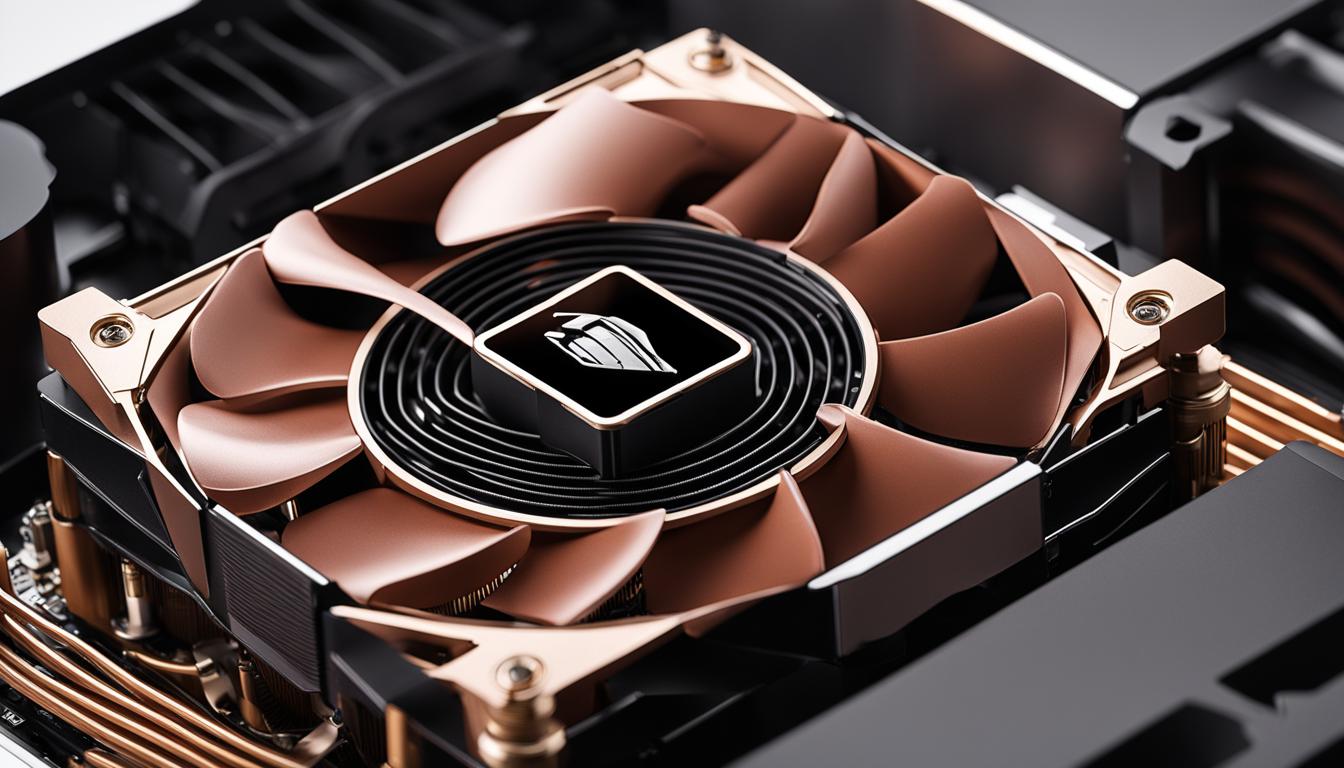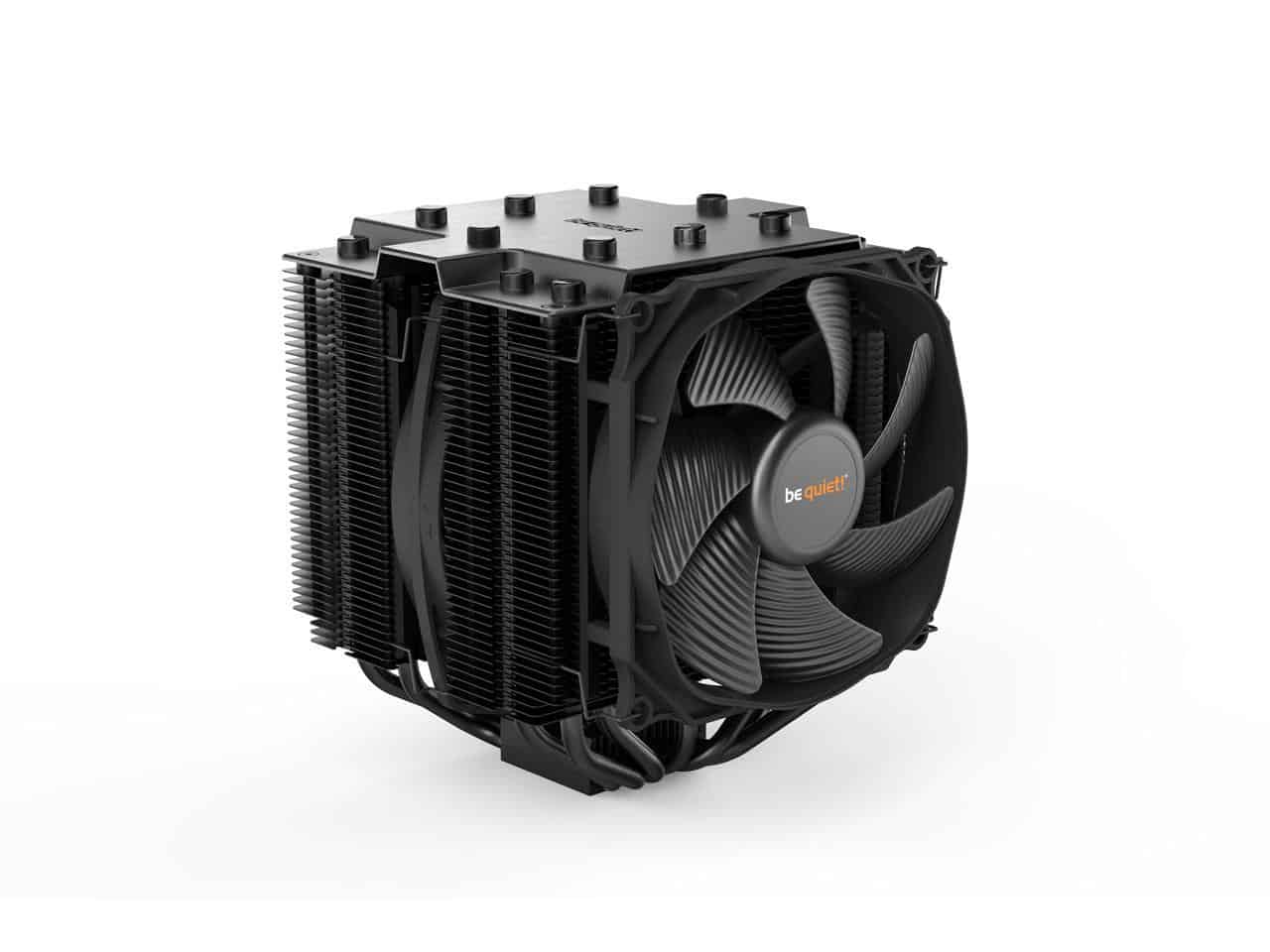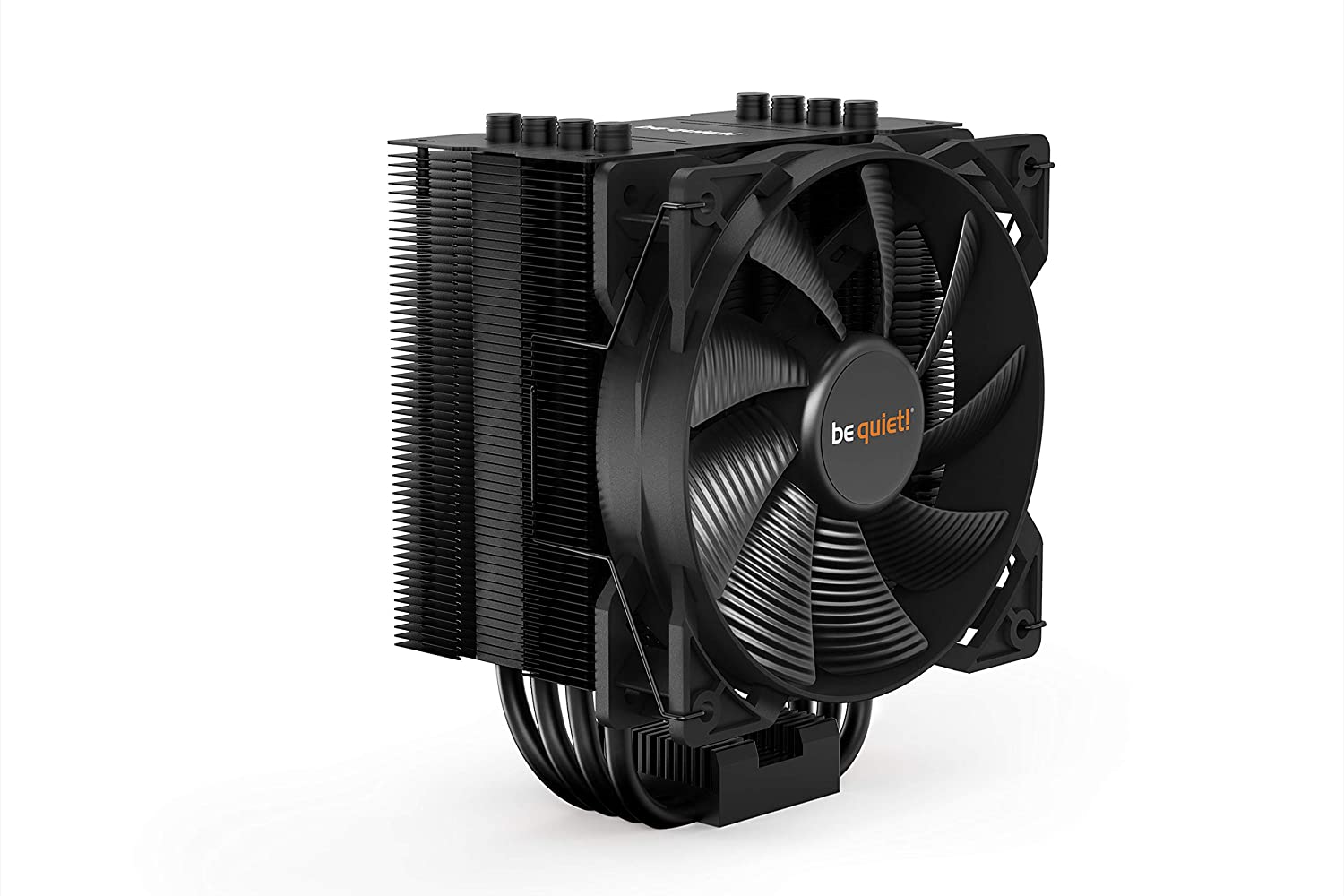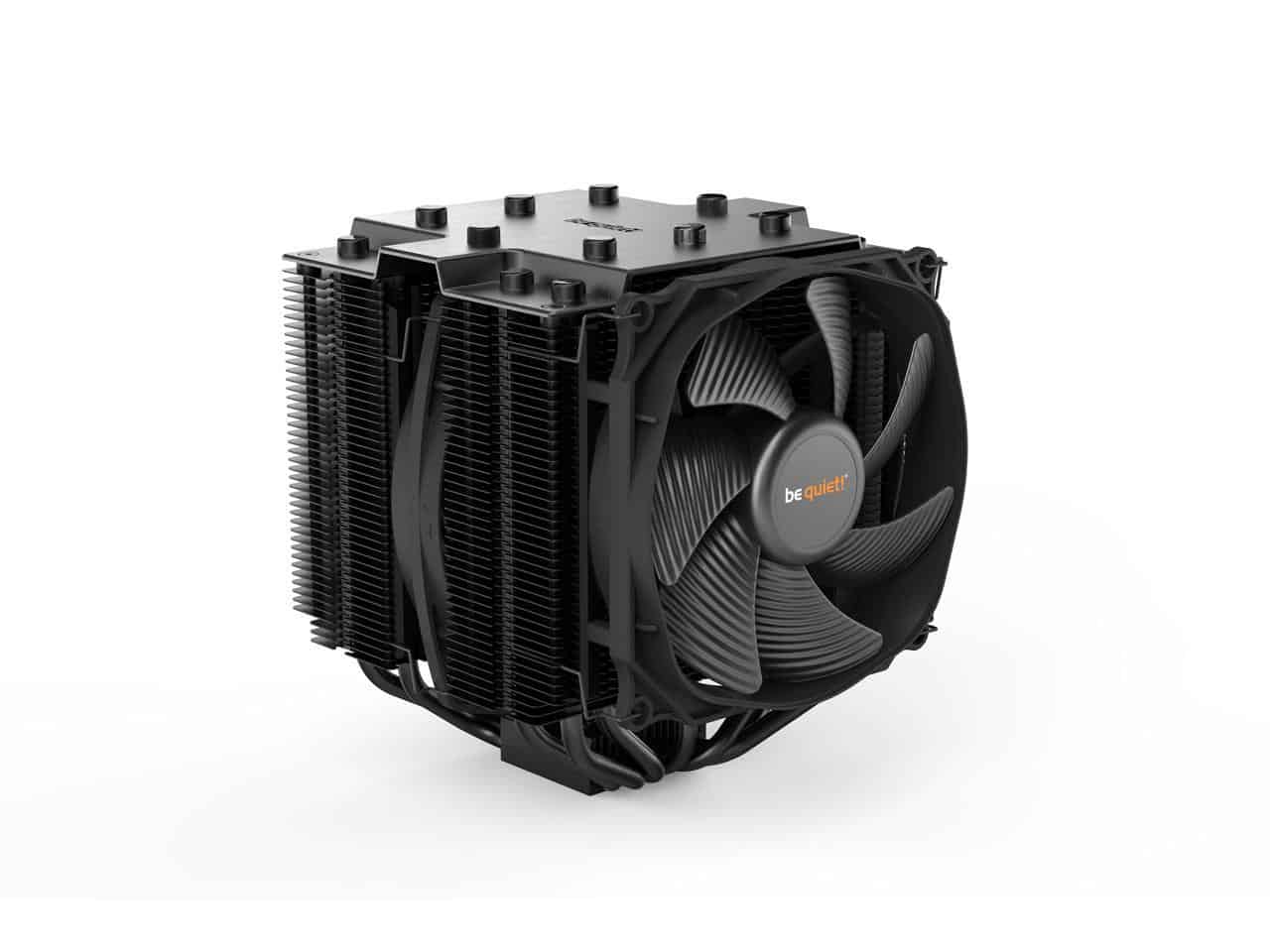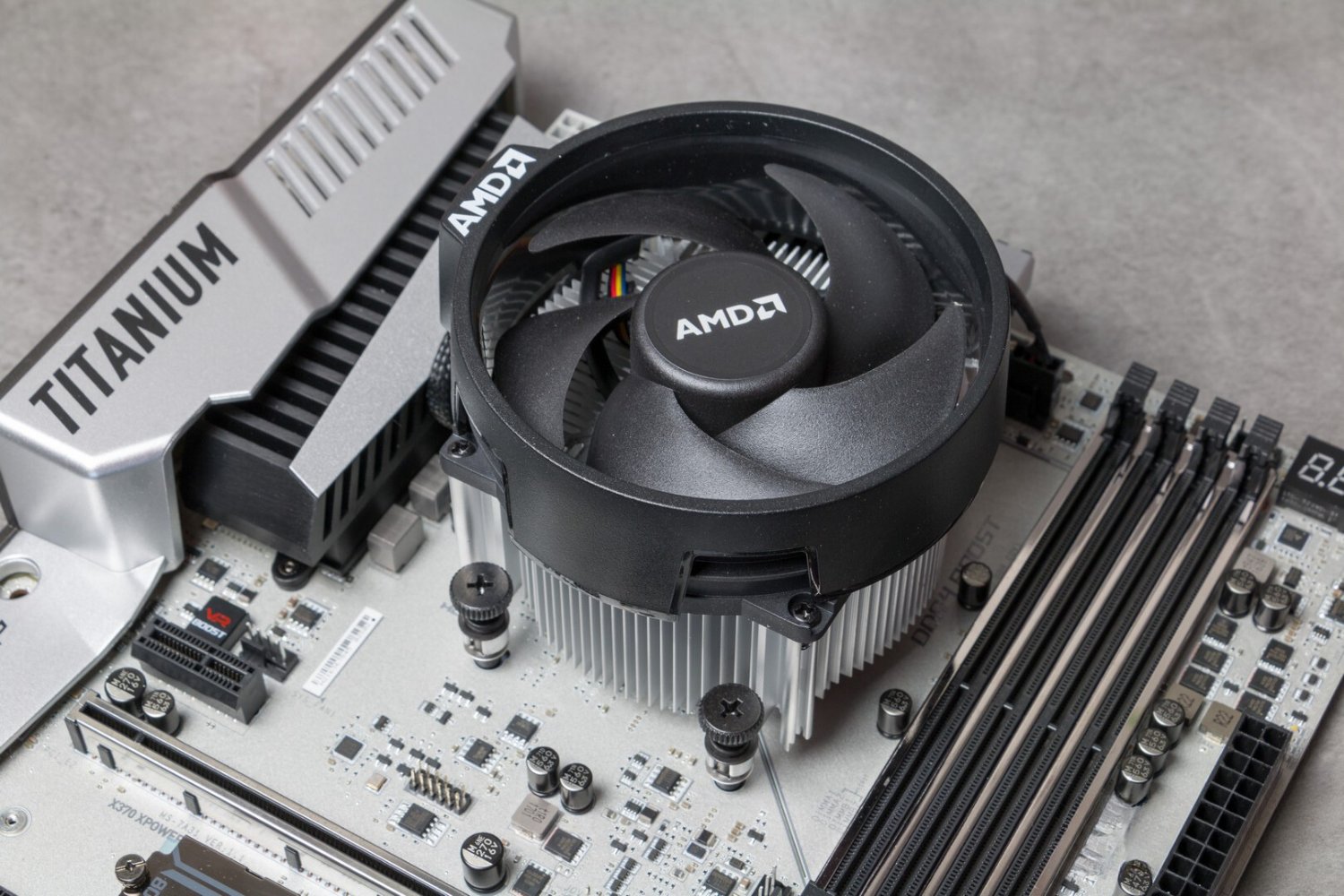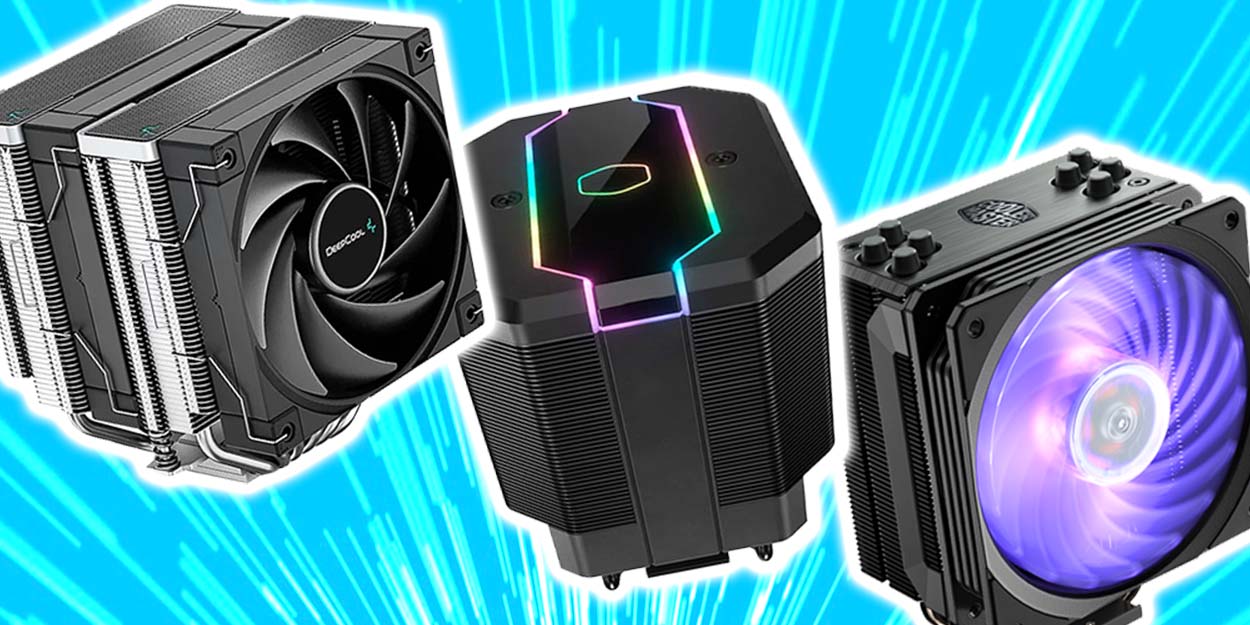Introduction
A CPU cooler is an essential component in a computer system that helps dissipate heat generated by the central processing unit (CPU). The CPU is one of the most critical components of a computer, and its performance can greatly impact overall system speed and stability. As a result, it is crucial to maintain optimal temperatures to ensure maximum efficiency and prevent damage to the CPU.
One important aspect to consider when choosing a CPU cooler is noise level. Traditional CPU coolers often rely on loud fans to dissipate heat, which can be distracting and disruptive, especially in quieter environments. However, with advancements in technology, manufacturers have developed quiet CPU coolers that provide effective cooling while minimizing noise output.
A quiet CPU cooler is important for several reasons. Firstly, it helps create a more pleasant and peaceful environment for users. Whether you are working or gaming, excessive fan noise can be distracting and affect concentration. With a silent CPU cooler, you can enjoy a quieter computing experience with reduced background noise.
Secondly, a quiet CPU cooler is beneficial for those who rely on recording audio or participating in voice chats. The reduced noise level ensures that the background noise does not interfere with your recordings or conversations, resulting in better sound quality.
Additionally, a quiet CPU cooler can contribute to the longevity and reliability of your computer system. High temperatures can significantly impact CPU performance and even lead to thermal throttling, where the CPU reduces its clock speed to prevent overheating. By using a quiet CPU cooler that effectively dissipates heat, you can maintain optimal temperatures and prolong the lifespan of your CPU.
When choosing a quiet CPU cooler, there are several factors to consider, such as the type of cooling system (air vs. liquid), the noise level of the fans, heat dissipation capabilities, compatibility with your CPU socket, and ease of installation. By evaluating these factors and selecting the right CPU cooler for your needs, you can strike a balance between effective cooling and a quiet computing experience.
In the following sections, we will discuss in detail the factors to consider when choosing a quiet CPU cooler, the differences between air and liquid cooling, the importance of fan noise levels, and popular quiet CPU cooler brands in the market.
What is a CPU Cooler?
A CPU cooler is a device that is specifically designed to keep the CPU of a computer system from overheating. The CPU generates a significant amount of heat during its operation, and if not properly cooled, it can lead to performance issues and even permanent damage to the processor.
The CPU cooler consists of various components, including a heat sink, fan(s), and in some cases, a liquid cooling system. The primary function of the CPU cooler is to absorb the heat produced by the CPU and dissipate it efficiently to maintain the ideal operating temperature range.
The heat sink is a metal structure with a large surface area that is positioned on top of the CPU. It is made of materials, such as aluminum or copper, that have excellent heat conductivity. The heat sink absorbs the heat generated by the CPU and transfers it away from the processor, allowing for effective cooling.
In addition to the heat sink, the CPU cooler also incorporates fans to increase airflow and assist in heat dissipation. The fans are strategically placed to blow air directly onto the heat sink, helping to dissipate the heat more quickly. Fans in CPU coolers are designed to operate at high speeds to ensure efficient cooling, but this can result in increased noise levels.
Some CPU coolers also utilize a liquid cooling system, which involves circulating a liquid coolant through the heat sink to absorb and carry away the heat. Liquid cooling is often preferred by enthusiasts and overclockers due to its superior cooling performance and reduced noise levels. However, liquid cooling systems can be more complex to install and may require additional components.
Overall, a CPU cooler is an essential component in any computer system, especially for those who engage in demanding tasks such as gaming, video editing, or 3D rendering. It ensures that the CPU runs at optimal temperatures, preventing thermal throttling and maintaining stable performance.
In the next section, we will explore why a quiet CPU cooler is important and how it can enhance your computing experience.
Why is a Quiet CPU Cooler Important?
A quiet CPU cooler can significantly enhance the overall user experience and provide several key benefits. Here are some reasons why having a quiet CPU cooler is important:
Reduced Noise Levels: One of the primary reasons for considering a quiet CPU cooler is to minimize noise levels in your computer system. Traditional CPU coolers often rely on high-speed fans to dissipate heat, resulting in audible noise that can be distracting and disruptive. With a quiet CPU cooler, you can enjoy a more peaceful computing environment, whether you are working, gaming, or simply browsing the internet.
Improved Focus and Concentration: Excessive fan noise can be a major distraction, especially for tasks that require focus and concentration. Whether you are working on a complex project, studying, or engaging in creative activities, a quiet CPU cooler allows you to fully immerse yourself without the constant hum of loud fans in the background. This can greatly enhance productivity and the quality of your work.
Better Audio Recording and Communication: If you rely on audio recording or participate in voice chats, a quiet CPU cooler becomes even more important. Excessive fan noise can interfere with the clarity of your recordings or conversations. By using a quiet CPU cooler, you can ensure that your voice is clear and free from background noise, resulting in improved audio quality for recordings, online meetings, or gaming sessions.
Extended Component Lifespan: High temperatures can have a detrimental effect on the longevity and reliability of computer components, including the CPU. When a CPU runs hot for an extended period, it not only affects performance but also increases the risk of failure. A quiet CPU cooler that effectively dissipates heat helps maintain optimal operating temperatures, reducing the strain on the CPU and extending its lifespan.
Enhanced Aesthetic Appeal: With the increasing focus on aesthetics in computer builds, a quiet CPU cooler can contribute to a clean and visually appealing setup. Many quiet CPU coolers feature sleek designs and low-profile fans that blend seamlessly into the overall aesthetics of your system. Whether you have a windowed case to display your components or you simply prefer a more minimalist look, a quiet CPU cooler can improve the overall appearance of your build.
In summary, a quiet CPU cooler is important for creating a more peaceful computing environment, improving focus and concentration, enhancing audio recording and communication, extending the lifespan of components, and adding to the visual appeal of your system. The next section will discuss the factors to consider when choosing a quiet CPU cooler.
Factors to Consider when Choosing a Quiet CPU Cooler
When selecting a quiet CPU cooler, there are several important factors to consider to ensure optimal cooling performance and noise reduction. Here are the key factors to keep in mind:
Type of Cooling System: One of the first decisions to make is whether to opt for an air or liquid cooling system. Air coolers use fans to dissipate heat from the CPU, while liquid coolers rely on a pump and radiator to circulate coolant. Liquid coolers generally offer superior cooling performance and lower noise levels, but they can be more expensive and require additional installation steps.
Fan Noise Levels: Pay attention to the noise levels generated by the CPU cooler’s fans. Look for CPU coolers that have low decibel (dB) ratings while still delivering sufficient airflow. Some manufacturers provide noise level specifications, such as dB(A) ratings, which can help you gauge the expected noise output of the cooler.
Heat Dissipation: Consider the cooling capabilities of the CPU cooler. Look for models with larger heat sinks or additional heat pipes as they can contribute to better heat dissipation and more efficient cooling. This will help keep your CPU temperatures within safe limits while maintaining quieter operation.
Compatibility and Installation: Ensure that the CPU cooler is compatible with your motherboard socket and case. Different CPU coolers support various socket types, such as Intel LGA or AMD AM4, and have different physical dimensions. Additionally, consider the ease of installation, especially if you are a novice builder. Some coolers may require additional hardware or complex installation procedures, while others offer more straightforward mounting mechanisms.
Overall System Requirements: Consider the cooling requirements of your entire system, including any overclocking plans or high-performance components. If you have a powerful CPU or a gaming setup that generates significant heat, you may need a more robust cooling solution. Evaluate the cooling performance of the CPU cooler, taking into account the specific demands of your system.
Brand Reputation and Reviews: Research the reputation of the CPU cooler manufacturer and read reviews from other users. Look for reputable brands that have a track record of producing reliable and high-quality products. User reviews can provide valuable insights into real-world performance, noise levels, and overall satisfaction with the cooler.
By considering these factors, you can choose a quiet CPU cooler that meets your cooling needs while providing a quieter computing experience. In the next section, we will compare air and liquid cooling systems to help you make an informed decision.
Air vs. Liquid Cooling
When it comes to CPU cooling, two popular options are air cooling and liquid cooling. Both have their advantages and considerations, so it’s essential to understand the differences between the two.
Air Cooling: Air cooling is the most common and traditional method of cooling CPUs. It involves using a heatsink and fans to dissipate heat. Air coolers typically consist of a large heatsink made from aluminum or copper that sits on top of the CPU. Fans blow cool air over the heatsink, transferring heat away from the CPU. Air cooling is known for its simplicity, affordability, and ease of installation.
One of the main considerations with air cooling is the noise level. While modern air coolers have improved noise levels, they can still generate audible fan noise, especially under heavy load. Opting for larger heatsinks with larger, slower-spinning fans can help reduce noise levels.
Liquid Cooling: Liquid cooling, also known as water cooling, uses a closed-loop system that consists of a pump, radiator, and tubes filled with coolant. The pump circulates the coolant through the CPU water block, which absorbs heat from the CPU. The heated coolant is then carried to the radiator, where the heat is dissipated into the surrounding air with the help of fans. Liquid cooling offers several advantages over air cooling.
One of the main benefits of liquid cooling is its superior cooling efficiency. The larger surface area of the radiator, combined with the heat conductivity of the liquid coolant, allows for more effective heat dissipation. This results in lower CPU temperatures, which can be beneficial for overclocking or running high-performance systems.
In terms of noise levels, liquid coolers often have an advantage over air coolers. The absence of a direct fan connection to the CPU can lead to quieter operation. However, it’s important to note that the noise level can vary depending on the quality of the fans and pump used in the liquid cooler.
While liquid cooling offers better cooling performance and potentially lower noise levels, it also comes with some drawbacks. Liquid cooling systems are generally more expensive than air coolers, and installation can be more complex. Additionally, there is a small risk of leaks or pump failure, although modern closed-loop systems are designed to minimize these risks.
Ultimately, the choice between air and liquid cooling depends on your specific needs and preferences. If you prioritize cost-effectiveness and straightforward installation, air cooling may be the better choice. However, if you require excellent cooling performance and are willing to invest in a more high-end and potentially complex solution, liquid cooling may be the way to go.
In the next section, we will delve into the importance of fan noise levels and how it can impact your choice of CPU cooler.
Fan Noise Levels
When choosing a quiet CPU cooler, one of the crucial factors to consider is the noise level generated by the fans. Fan noise can vary significantly depending on factors such as fan speed, bearing type, and design of the fan blades. Understanding fan noise levels and their impact is essential for creating a quieter computing experience.
Noise levels of fans are typically measured in decibels (dB). The lower the dB rating, the quieter the fan will be. It’s important to note that even a small difference in decibel ratings can result in a noticeable change in noise perception.
Fan noise levels can be influenced by various factors:
Fan Speed: Fan speed is measured in revolutions per minute (RPM). Higher RPM generally means more airflow and better cooling performance but can also result in increased noise levels. Opting for fans with lower maximum RPM values can help reduce noise output while maintaining adequate cooling performance.
Bearing Type: Fans can utilize various bearing types, including sleeve, ball, and fluid dynamic bearings. Sleeve bearings are more affordable but tend to produce more noise over time. Ball bearings offer better durability and reduced noise levels. Fluid dynamic bearings provide excellent noise-to-performance ratio and are a popular choice for quiet cooling solutions.
Fan Size: The size of the fan can impact noise levels as well. Larger fans tend to spin at lower speeds to move the same amount of air as smaller fans, resulting in reduced noise. Fans with larger blades are also designed to move more air with less turbulence, further reducing noise generation.
Fan Blade Design: Fan blades come in various designs, including straight, curved, or serrated blades. Some designs aim to reduce noise by improving airflow and minimizing turbulence. Fans with specially designed blade profiles can help maintain optimal cooling performance while lowering noise levels.
While fan noise levels are an essential consideration, it’s important to find a balance between noise reduction and cooling performance. Cooling performance is crucial for keeping your CPU temperatures within safe limits, especially during demanding tasks.
When choosing a CPU cooler, look for models that are specifically marketed as quiet or low-noise options. Manufacturers often provide noise level specifications such as dB(A) ratings, which give you an idea of the expected noise output of the cooler. Additionally, reading reviews from other users can provide valuable insights into real-world noise levels and performance.
Remember that fan noise is not only determined by the CPU cooler itself but also by other fans in the system, such as case fans and graphics card fans. Consider the overall noise output of your system and ensure that all fans work together harmoniously to create a quieter computing environment.
By carefully selecting CPU coolers with low noise levels and paying attention to factors such as fan speed, bearing type, fan size, and blade design, you can create an environment that is both cool and quiet.
Next, we will explore the importance of heat dissipation and its role in selecting a quiet CPU cooler.
Heat Dissipation
Heat dissipation is a critical factor to consider when choosing a quiet CPU cooler. Efficient heat dissipation plays a crucial role in maintaining optimal temperatures for your CPU, ensuring its performance and longevity. A CPU cooler’s ability to effectively dissipate heat depends on several key factors.
Heat Sink: The heat sink is the component of the CPU cooler responsible for absorbing and dispersing heat. It consists of a metal structure with a large surface area. The material used for the heat sink, such as aluminum or copper, greatly affects its heat conductivity. Copper heat sinks are generally more effective at dissipating heat but tend to be more expensive. Larger heat sinks with more fins provide a greater surface area for heat dissipation.
Heat Pipes: Heat pipes are another important aspect of heat dissipation in CPU coolers. These are sealed copper or aluminum tubes that contain a small amount of liquid (often a combination of water and other substances). Heat pipes transfer heat away from the CPU to the heat sink more efficiently, reducing temperature build-up. CPU coolers with more heat pipes generally offer improved heat dissipation capabilities.
Fan Performance: The fans in a CPU cooler play a critical role in heat dissipation by facilitating airflow over the heat sink. High-performance fans with adequate static pressure can help push air through the heat sink and accelerate heat dissipation. Look for fans with optimized blade designs and higher airflow ratings to ensure effective cooling. Additionally, consider fans with low noise levels to minimize noise output while maintaining efficient heat dissipation.
Thermal Interface Material (TIM): The TIM is the material that is applied between the CPU and the heat sink to enhance heat transfer. High-quality thermal pastes or pads with low thermal resistance can help improve heat dissipation efficiency by filling in microscopic gaps between the CPU and the heat sink. Proper application of TIM is crucial to minimize heat resistance and ensure optimal heat transfer.
In situations where you have a high-performance CPU or engage in demanding tasks like gaming or content creation, it’s important to select a CPU cooler with excellent heat dissipation capabilities. Over time, inadequate heat dissipation can result in thermal throttling, where the CPU reduces its clock speed to prevent overheating, leading to reduced performance.
When selecting a quiet CPU cooler, evaluate the heat dissipation capabilities of the cooler and align them with your specific needs. Consider the size and design of the heat sink, the number of heat pipes, the fan performance, and the quality of the thermal interface material. By choosing a CPU cooler with effective heat dissipation, you can maintain optimal CPU temperatures, prevent thermal throttling, and ensure a quiet and stable computing experience.
In the next section, we will discuss the importance of compatibility and ease of installation when selecting a quiet CPU cooler.
Compatibility and Installation
When choosing a quiet CPU cooler, it is crucial to consider compatibility and ease of installation. Ensuring that the CPU cooler is compatible with your motherboard socket and case, as well as having a straightforward installation process, will save you time and potential frustration. Here are the key aspects to consider:
Socket Compatibility: Verify that the CPU cooler is compatible with your motherboard socket. Different CPUs use different sockets, such as Intel’s LGA (Land Grid Array) or AMD’s AM4 socket. Check the specifications of the CPU cooler to ensure it supports your specific socket type. Failure to match socket compatibility will result in an incompatible or ineffective cooling solution.
Case Clearance: Consider the dimensions of the CPU cooler and the available space inside your computer case. Some CPU coolers can be quite large, and their height may interfere with other components such as memory modules or case fans. Ensure that the CPU cooler will fit comfortably within your case without obstruction, especially if you have a compact or small form factor case.
Installation Process: Evaluate the installation process for the CPU cooler, especially if you are a beginner builder. Some coolers may require extensive disassembly of the motherboard or complex mounting mechanisms, which can be time-consuming and prone to errors. Look for CPU coolers that come with clear and detailed instructions, offer user-friendly mounting systems, and provide any necessary installation hardware.
Compatibility with RAM Modules: Take into account the height and design of your RAM modules when selecting a CPU cooler. Some high-profile CPU coolers with large heatsinks may obstruct the installation or removal of RAM modules. Look for CPU coolers with a low-profile design or clearance for RAM modules, especially if you have taller RAM modules or plan to upgrade in the future.
Additional Component Compatibility: Consider other components in your system that may impact CPU cooler compatibility, such as graphics cards or chipset heatsinks. Ensure that the CPU cooler will not interfere with these components or impede their cooling performance. Some CPU coolers offer offset designs or provide compatibility with different motherboard layouts to accommodate various system configurations.
By ensuring compatibility and considering the ease of installation, you can save yourself from potential compatibility issues and challenges during the installation process. This will make the overall building experience smoother and more enjoyable, especially for those who are less experienced. Read user reviews and manufacturer specifications to get an idea of the compatibility and installation experience of a particular CPU cooler.
In the next section, we will discuss some popular brands known for producing quiet CPU coolers in the market.
Popular Quiet CPU Cooler Brands
Several brands are known for producing high-quality, quiet CPU coolers that provide efficient cooling performance with minimal noise output. Here are some popular brands that have garnered a reputation for their quiet CPU coolers:
Noctua: Noctua is synonymous with premium cooling solutions. Their CPU coolers are renowned for their exceptional build quality, low noise levels, and excellent heat dissipation capabilities. Noctua utilizes advanced fan designs, such as their renowned SSO2 bearing technology, which ensures quiet operation without compromising on performance.
be quiet!: As the name suggests, be quiet! focuses on producing quiet PC components, and their CPU coolers are no exception. They offer a wide range of air and liquid coolers that combine whisper-quiet operation with impressive cooling performance. be quiet! coolers often feature high-quality fans, unique fin designs, and low-noise pump systems for their liquid coolers.
Cryorig: Cryorig is known for its innovative cooling solutions that offer both functionality and aesthetics. Their CPU coolers feature a distinctive design with unique fin arrays and multi-segment fans for efficient heat dissipation and reduced noise levels. Cryorig coolers often come with advanced mounting systems for ease of installation.
Cooler Master: Cooler Master is a well-established brand known for delivering reliable PC cooling solutions. They offer a diverse range of CPU coolers, including air coolers with silent fans, as well as all-in-one liquid coolers that balance cooling efficiency with quiet operation. Cooler Master coolers often come with customizable fan profiles and RGB lighting options.
Arctic: Arctic specializes in affordable yet effective cooling solutions. They offer a range of air and liquid coolers that focus on providing excellent cooling performance with low noise output. Arctic coolers often utilize high-quality fans and advanced heat sink designs to maximize heat dissipation while keeping noise levels to a minimum.
Thermalright: Thermalright is known for producing high-performance CPU coolers that deliver silent operation. They offer a range of air coolers with large, efficient heatsinks and low-noise fans. Thermalright coolers often provide exceptional cooling performance and compatibility with various CPU sockets.
These brands have earned a solid reputation for their commitment to quality, performance, and silent operation. They continuously innovate to provide efficient cooling solutions with reduced noise levels, enhancing the overall computing experience for users.
When selecting a CPU cooler, consider the specific models and offerings from these brands, along with customer reviews and ratings. Ultimately, the right choice will depend on your specific cooling requirements, budget, and aesthetic preferences.
Now that we have explored popular quiet CPU cooler brands, we will conclude with a brief recap of the key factors to consider when selecting a quiet CPU cooler.
Conclusion
Choosing a quiet CPU cooler is essential for maintaining optimal CPU temperatures while minimizing noise levels in your computer system. A quiet CPU cooler can contribute to a more peaceful and immersive computing experience, improve focus and concentration, enhance audio recording and communication, extend component lifespan, and add to the overall aesthetic appeal of your system.
When selecting a quiet CPU cooler, consider factors such as the type of cooling system (air vs. liquid), fan noise levels, heat dissipation capabilities, compatibility with your CPU socket, and ease of installation. Take into account the specific requirements of your system, such as overclocking or high-performance tasks, to ensure that the CPU cooler matches your needs.
Popular brands known for producing quiet CPU coolers include Noctua, be quiet!, Cryorig, Cooler Master, Arctic, and Thermalright. These brands are recognized for their commitment to delivering efficient cooling performance with reduced noise output.
In summary, a quiet CPU cooler plays a vital role in maintaining optimal CPU temperatures and creating a quieter computing environment. By considering the key factors and exploring the offerings of reputable brands, you can select a CPU cooler that meets your cooling needs while providing a more enjoyable computing experience.







